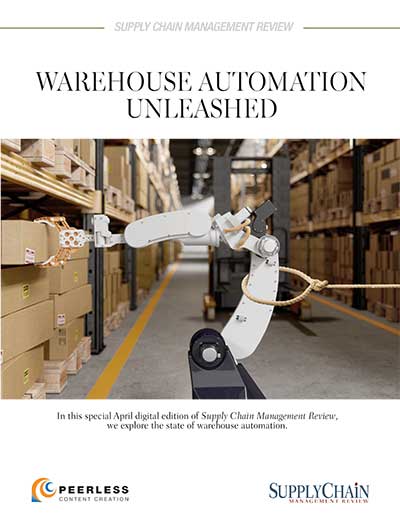As inflation and supply shortages are projected to continue, chief supply chain officers (CSCOs) must adopt resource conservation strategies to mitigate risks to their organizations, according to Gartner, Inc.
“CSCOs foresee that the anticipated increases in inflation and ongoing supply shortages will lead to further production challenges and shipping ineffectiveness,” said Sarah Watt, senior director analyst with the Gartner Supply Chain practice. “These constraints are not short-term, and the underlying trend is that demand for goods is rising, while supply is increasingly scarce.”
Additionally, CSCOs face pressure from internal and external stakeholders to make their networks more sustainable. According to a Gartner survey of 983 supply chain professionals from August 2021 through October of 2021, 67% of respondents said they were investing in including environmental and social sustainability metrics as KPIs for supply chain leaders.
Resource conservation is a key factor in mitigating these challenges. Gartner suggests three strategies that CSCOs can deploy.
Slow down primary consumption with circular economy models
So far, economic progress has been based on linear consumption - take, make, dispose. However, there’s a slow, but steady shift towards circular economy models. “The circular economy provides an opportunity to decouple raw materials from growth. Circular economy activities range from as-a-service models to incentivized return and collaborative consumption,” Watt said.
Another important aspect is the ownership of end-of-life materials, especially if they contain valuable raw material. If companies manage to close the loop, they can become more resilient against supply shortages. “Essentially some suppliers are using “end-of-life” materials as a hedge against inflation and availability concerns,” Watt said.
Before embarking on a circular economy strategy, Watt recommends that both environmental, financial, and societal impacts are assessed at a product and service level. “The circular economy choice may also come with unintended consequences. CSCOs need to define the best candidates for circularity, or they may end up creating increased environmental burden rather than reducing it.”
Treat waste like a value-based asset
In an environment of constrained supply, CSCOs must capitalize on the potential value of waste and see it as an asset. Capitalizing on value can be achieved by building ecosystem partnerships with waste contractors, suppliers and innovators. With new legislation being passed around producer responsibility and changes in waste regulation, waste will be increasingly seen as a liability – when it could also be a resource. CSCOs need to shift their strategies to encompass waste streams, and gain control so that waste materials can be used effectively.
Preserve natural capital
Natural capital is the stocks of geology, soil, air and water that organizations rely on for production of materials. Without stocks of natural capital, supply chains would not function. However, natural capital is viewed as an externality - no one pays for it.
CSCOs must shift their relationships with natural capital and focus on activities such as reducing biodiversity loss, fighting deforestation, or exploring regenerative agriculture. “The risk today is that CSCOs are spending the feedstocks more quickly than they can regenerate, and supply chains must make sure that they don’t destroy the very base of their business,” Watt concluded.
SC
MR

Latest Supply Chain News
- Technology’s role in mending supply chain fragility after recent disruptions
- Tech investments bring revenue increases, survey finds
- Survey reveals strategies for addressing supply chain, logistics labor shortages
- Israel, Ukraine aid package to increase pressure on aerospace and defense supply chains
- How CPG brands can deliver on supplier diversity promises
- More News
Latest Resources

 Explore
Explore
Latest Supply Chain News
- Technology’s role in mending supply chain fragility after recent disruptions
- Tech investments bring revenue increases, survey finds
- Survey reveals strategies for addressing supply chain, logistics labor shortages
- Israel, Ukraine aid package to increase pressure on aerospace and defense supply chains
- How CPG brands can deliver on supplier diversity promises
- How S&OP provides the answer to in-demand products
- More latest news
Latest Resources

Subscribe

Supply Chain Management Review delivers the best industry content.

Editors’ Picks





